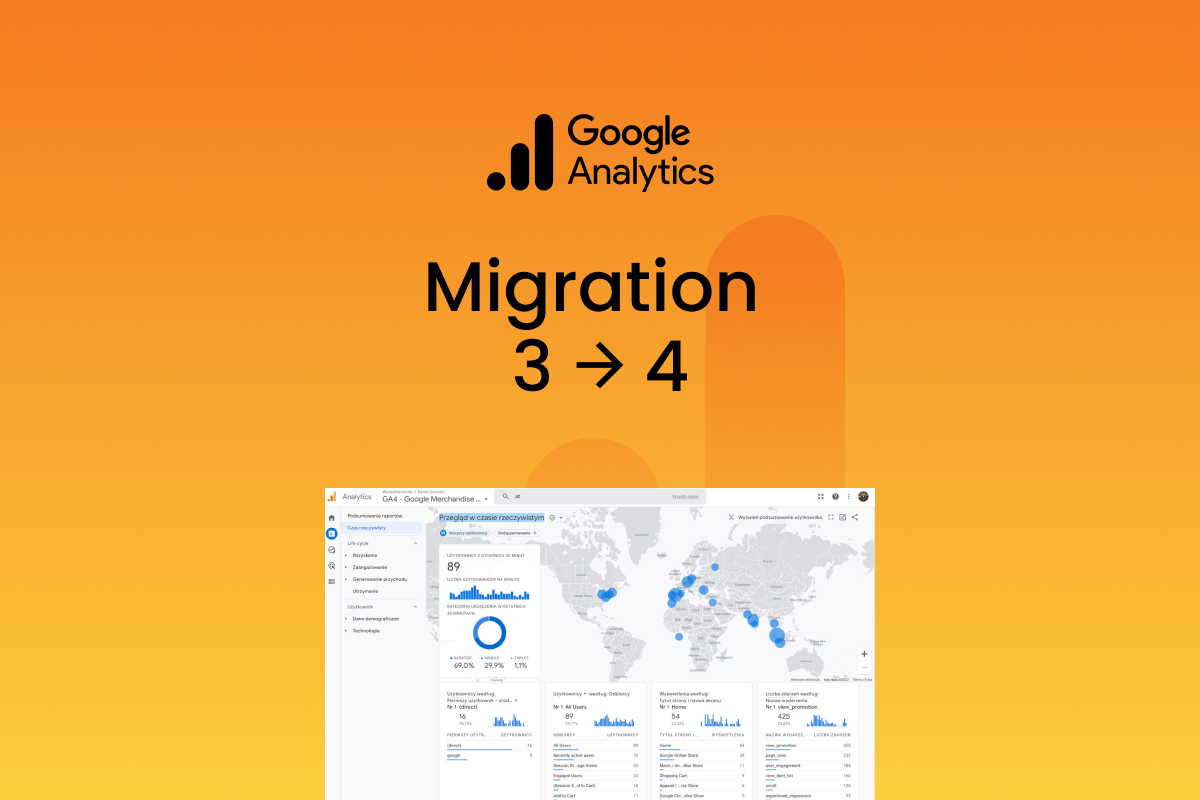GA4 feautures
In today’s world, every business looking to grow and acquire new customers needs to understand and analyze its data. Google Analytics 4 (GA4) is one of the most advanced and popular data analysis tools, allowing you to track traffic and user interactions on a website. Implementing GA4 on your product page can bring many benefits to your business, and we’re here to help you through the process.
Here are a few reasons why you should consider implementing Google Analytics 4 on your product page:
Understanding user behavior
GA4 enables you to monitor all the key user interactions on your product page, such as clicks, image browsin & reading descriptions. Analyzing this data helps you understand what attracts customers' & which elements of the website require optimization.
Measuring campaings effectiveness
With GA4, you can determine which marketing campaigns yield the best results in terms of conversions on your product page. This allows you to optimize your marketing strategy and focus on the channels that deliver the most value.
Tracking conversions
GA4 allows you to track conversions, such as adding a product to the cart or making a purchase. Analyzing this data enables you to evaluate the effectiveness of your product page and implement any necessary changes to increase the number of conversions.
User segmentation
Google Analytics 4 lets you segment users based on various criteria, such as traffic source, location, or device. This helps you better tailor your marketing strategy to the needs of different customer groups.
Identifying technical issues
GA4 enables you to identify technical issues on your product page, such as loading errors or incompatibility with specific devices or browsers. Promptly addressing these issues ensures a better user experience on your site.
Content personalization
By analyzing data in GA4, you can gain a better understanding of users' needs and preferences, allowing you to personalize content on your product page. Customizing your offerings increases the likelihood of conversions.
Implementing Google Analytics 4 on your product page is an investment that can significantly improve your site’s performance and overall user experience. By understanding and acting on the insights provided by GA4, you’ll be better equipped to make data-driven decisions that drive growth and customer satisfaction.
Questions & Answers
There are many changes (as evidenced by the need to implement analytics from scratch). Here are a few significant ones:
- Data models: In Universal Analytics (UA), the data model was based on sessions and users. In GA4, the data model is based on events and parameters, providing greater flexibility and deeper analysis of user behavior on the site.
- Event tracking: GA4 introduces simplified event tracking without the need to modify the site code. In contrast, UA typically required adding additional code snippets to track custom events.
- Google Ads integration: GA4 offers improved integration with Google Ads, allowing for more effective management of advertising campaigns and better understanding of results.
- Reporting: GA4 introduces new, more intuitive reports with better data exploration capabilities. In UA, reports were more static, with limited customization options.
- Real-time analysis: In GA4, real-time reports are much more advanced and provide more information about user behavior on the site at a given moment.
- Automatic tracking: GA4 automatically tracks certain important events, such as the first app open, app update, or purchase completion, without the need to configure these events manually.
- Data anonymization: GA4 offers enhanced data anonymization features that help comply with various data protection regulations, such as GDPR.
- AI models and prediction: GA4 uses AI models and machine learning for data analysis, offering a range of predictive features that were not available in UA.
Support for apps and websites: GA4 is designed to handle both mobile apps and websites, allowing for better tracking of users across different platforms. UA was more focused on websites.
We support the most popular content management systems (CMS) and e-commerce platforms, such as:
- WordPress,
- Joomla,
- Drupal,
- Magento,
- Shopify,
- WooCommerce,
- PrestaShop,
- Shoper,
- IdoSell,
- RedCart,
- and many others.
We can also implement Google Analytics 4 on a dedicated platform that doesn’t use widely known solutions. In such a case, we collaborate with our technical team to tailor the implementation to the specific needs and requirements of the particular platform.
Google Universal Analytics will stop collecting data on July 1, 2023.

Reviews
There are no reviews yet.